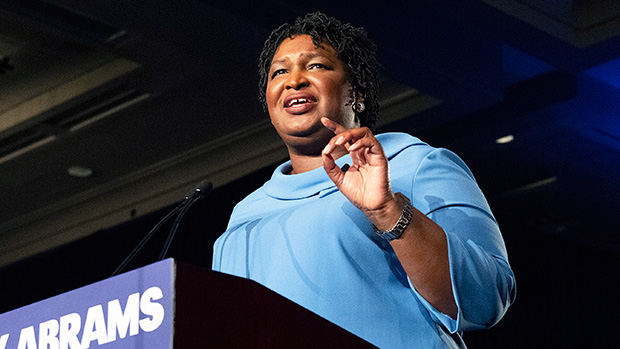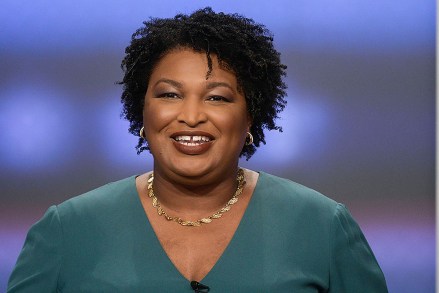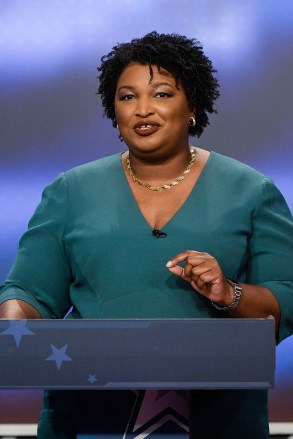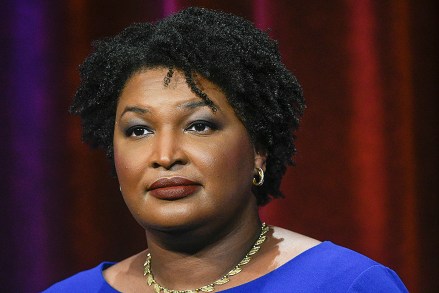
View gallery
- Stacey Abrams ran for governor in 2018 and 2022.
- Stacey Abrams helped register tons of voters in the 2020 election.
- Stacey Abrams lost the 2022 election to Brian Kemp.
Stacey Abrams lost her campaign to be Governor of Georgia on Tuesday, November 8. The former Georgia House Of Representatives Minority Leader conceded to her opponent, incumbent Governor Brian Kemp. Despite her loss, Abrams vowed to continue fighting for Georgians in her speech, via Fox 5 Atlanta. “I may no longer be seeking the office of governor, but I will never stop doing everything in my power to make sure the people in Georgia have a voice,” she said.
In her speech, Abrams thanked the many people who supported her campaign and said she’d continue to work to improve the Peach State. “While I may have not crossed the finish line, that doesn’t mean that I won’t stop running for a better Georgia,” she said. “I am here because this is a moment, where despite every obstacle, we are still standing tall and standing resolute and standing in our values, and we know Georgia deserves more, and whether we do it from the Governor’s mansion or from the streets, whether we do it from the Capitol or from our community, we are going to do more for the state of Georgia. That is what we’re here for. That is our obligation. That is our responsibility.”
Despite her loss for governor, Abrams will surely continue to be a major voice in the realm of American politics. She had previously run for governor in 2018, but lost to Kemp. After her defeat, she mobilized voters in a number of ways, including using Instagram and Twitter, for the 2020 election which helped elect Senators Jon Ossoff and Raphael Warnock, as well as President Joe Biden. After helping both the Democratic senators turn Georgia blue, she announced her second campaign for governor in December 2021, in a video on Twitter. Find out more about Abrams here.
1. She mobilized voters across the country in 2020, particularly in Georgia.
Abrams has worked tirelessly, especially over the last year, to elect Democrats in the United States — including President-elect Joe Biden and Vice President-elect Kamala Harris. Now, the 2020 Senate runoff race in Georgia looks like it will go to Democrats, with Rev. Raphael Warnock already elected, and Jon Ossoff in the lead. But Abrams work as an organizer spans a decade. A former Georgia House of Representatives minority leader, Abrams began strengthening the Democratic party’s base in the state.
She’s the leader of two voting rights groups. New Georgia Project, founded in 2014, focuses on people of color, 18 to 29 year olds, and unmarried women as a key voting base. She describes them as the “New American Majority.” Fair Fight, founded in 2018, “promotes fair elections in Georgia and around the country, encourage voter participation in elections, and educate voters about elections and their voting rights.”
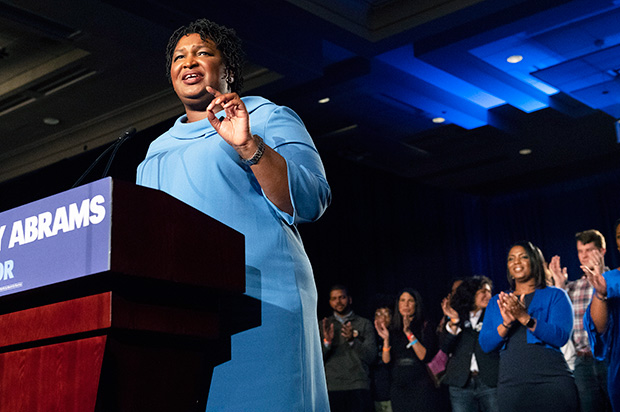
2. She ran for Governor in Georgia and lost by less than 55,000 votes in 2018.
Abrams’ loss to Georgia’s secretary of state, Brian Kemp, was one of the biggest upsets of the 2018 midterm elections. Abrams refused to concede victory after rampant allegations throughout the state of voter suppression; voters reported widespread discrepancies with their polling places, missing ballots, broken machine, and being told that they weren’t registered to vote at all. She later acknowledged that Kemp won, but challenged the results in court.
3. She delivered the 2019 State of the Union.
Senate Minority Leader Chuck Schumer explained to press that Democrats selected Abrams because, “She is just a great spokesperson. She’s an incredible leader. She has led the charge for voting rights, which is at the root of just about everything else.” President Donald Trump‘s State of the Union address was supposed to happen on January 29, but was postponed at House Majority Leader Nancy Pelosi‘s request due to the 35-day government shutdown. The shutdown, which Trump spearheaded because he wanted $5.7 billion for his border wall, officially ended on January 25, 2019. He delivered the address on February 5 with Abrams responding afterward.
4. She would’ve been the first Black female governor in U.S. history.
It was about more than being Georgia’s first Democratic governor in 15 years. Yes, a Black woman has never been a United States governor. Twenty-two states have never had a female governor at all. “I’m very aware that as an African-American woman, I will be doing something no one else has done,” Abrams told CNN at the time.
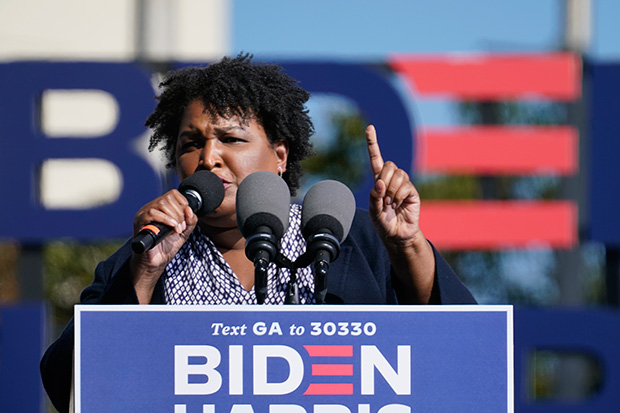
5. A distressing incident in 1991 inspired her to enter politics.
In 1991, a young Abrams excitedly traveled to the Georgia Governor’s Mansion by bus with her parents so the high school valedictorian could be honored as one of the top students in the state. But a security guard refused to let them inside. “I distinctly remember him looking at the MARTA bus, looking at my parents and making a decision. The security guard refused to allow us inside. He said it was a private event,” Abrams recalled during an October 2017 forum.
While they were ultimately let inside after pointing out that her name was first on the guest list, the incident still disturbed the teenager. While she doesn’t know if it was because of her race, she said that the way she felt about it fueled her drive.“In front of the most powerful place in Georgia, telling me I don’t belong there, that’s resonated for me for the last 20 years. The reality is having a right to be places does not always mean that you’ll gain admission,” she said.
